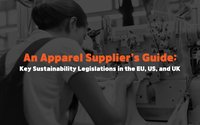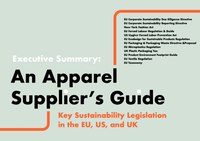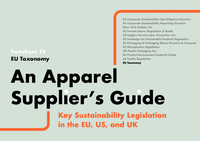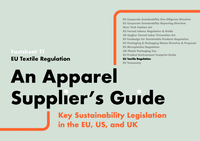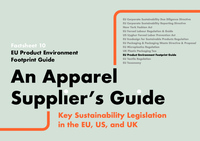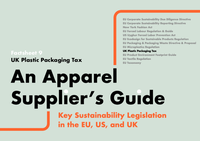Contributions Overview

The Academy is offered in English, French and Spanish. Plenary sessions will be supported by simultaneous translation, while elective courses on green economy measure in different countries will be offered in the three languages separately.

Exploring the latest regulatory, legal and scientific developments for PFASs

Fashion's unseen stories exhibition
An exhibition of photographs taken by homeworkers in Tirupur, India documenting the challenges and benefits of homeworking in fashion.

HKRITA Forum "Partners for Progress"
The Hong Kong Research Institute of Textiles and Apparel
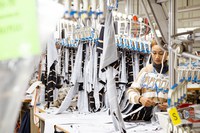
How to promote sustainability through innovation in the textile ecosystem?
Hosted by EURATEX, the webinar will explore the innovation needed in the textile industry to implement the EU Textile Strategy.

Join us on 7 September 2023 to hear the inside track on the update. Hear from governments and stakeholders about what’s changed and why it matters.
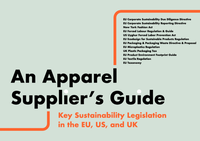
An Apparel Supplier's Guide - Key Sustainability Legislation in the EU, US and UK
The Apparel Supplier's Guide is intended to enable suppliers in the apparel value chain - and others who are seeking to learn more about upcoming legislation - to better understand how impending sustainability-related legislation in the Global North will impact them.

